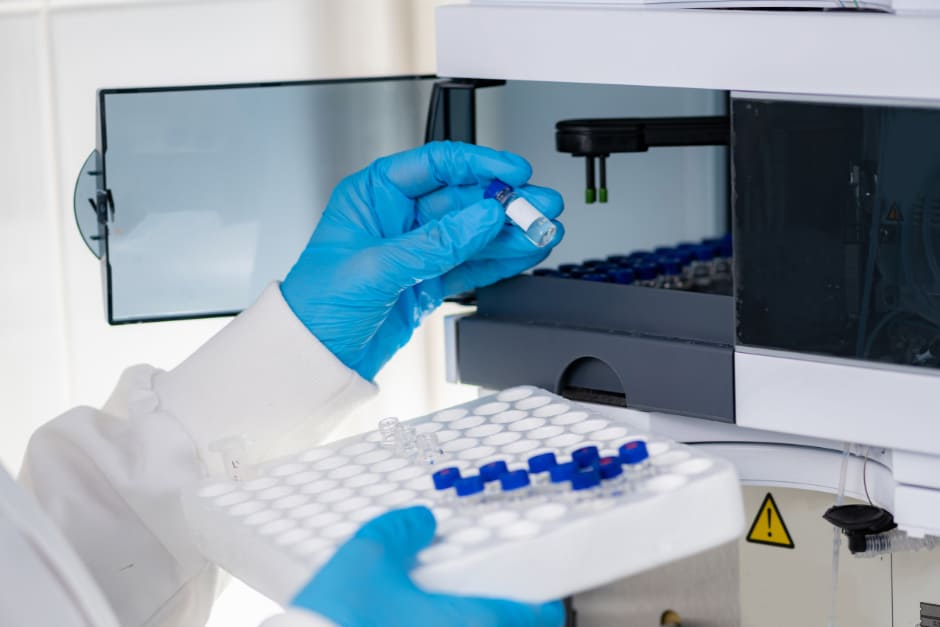The article highlights the key points related to the regulatory framework for clinical trials in Egypt.

Table of content
The Egyptian Drug Authority (EDA) has published the guidelines for Good Regulatory Oversight of clinical trials. The document provides an overview of the applicable regulatory requirements, as well as additional clarifications and recommendations to be taken into consideration by the parties responsible for clinical investigations in order to ensure the safety of study participants, as well as the accuracy and reliability of the results.
The authority also reserves the right to make changes to the guidelines and recommendations provided, should such changes be reasonably necessary to reflect corresponding amendments to the underlying regulations.
Introduction
According to the document, Good Clinical Practice (GCP) is a global ethical and scientific quality standard for designing, conducting, recording, and reporting clinical trials involving human subjects. The compliance of clinical trials with GCP ensures that the rights, safety, and well-being of trial participants are protected in line with the principles of the Declaration of Helsinki while also ensuring that clinical trial data are credible.
In Egypt, GCP guidelines have been adopted since 2006, beginning with ministerial decrees regulating biological and pharmaceutical products. Specifically, the Arab Republic of Egypt issued ministerial decree No. 436/2006 for biological products, followed by decree No. 734/2016 for pharmaceutical products.
Further decrees, including No. 399/2010 for biological products and No. 132/2017 for pharmaceutical products, established regulations for clinical trials. The EDA, established under Law No. 151 of 2019, assumed responsibility for overseeing clinical trials.
The EDA collaborates with other regulatory authorities to enforce laws and ensure that GCP standards are consistently applied to biological products, pharmaceutical products, innovative products, medical devices, and herbal medicines.

Regulatory Structure and Responsibilities
The General Administration of Clinical Trials (GA of CT) within the EDA oversees all aspects of clinical trials, including the review and evaluation of clinical and preclinical data. GA of CT is also responsible for organizing scientific committees, providing technical support, and conducting GCP inspections.
The organization is divided into different administrative sections that handle various tasks related to the evaluation, supervision, and approval of clinical trials. One key section is the Administration of Clinical Trials Evaluation, which reviews and evaluates studies submitted for registration, re-registration, or variations to the EDA.
Another vital component is the Administration of Protocols and Studies Follow-up, which supervises the conduct of medical research and ensures adherence to GCP standards during all phases of clinical trials. Additionally, this body is tasked with reviewing research protocols, issuing decisions on approval or refusal, and overseeing the completion of studies at research sites.
The EDA also convenes advisory scientific committees to evaluate preclinical and clinical studies. These committees provide technical support and ensure that regulations governing clinical research align with international GCP standards.
Legal Framework
The document also provides an overview of the applicable legal framework, outlining the key laws and regulations. According to the guidelines, several legal provisions govern clinical trials and GCP practices in Egypt, starting with Law No. 151 of 2019, which established the EDA.
Other key laws and decrees include:
- Executive Regulation No. 777/2020 of Law No. 151
- The Egyptian Clinical Trials Law No. 214/2020
- Executive Regulation No. 927/2022 of Law No. 214
- EDA Chairman Decree No. 111 of 2022
- Prime Minister’s Resolution No. 746 of 2024, establishing the Supreme Council for Review of Ethics in Clinical Medical Research.
These legal frameworks ensure that all clinical research conducted in Egypt complies with both national and international GCP standards.
Scope of the Guidelines
As it is further stated by the authority, the GCP guidelines in Egypt apply to all interventional medical research involving human subjects, whether they are healthy volunteers or patients. This includes trials investigating new investigational pharmaceutical or biological products, medical devices, herbal medicines, or new indications and dosage forms.
Clinical trials that have not been accredited by international bodies are also covered by these guidelines. For non-interventional clinical trials and other research studies, approval from an Institutional Review Board (IRB) is required, and the EDA must be notified accordingly.
Key Abbreviations and Definitions
The guideline also includes numerous key abbreviations and definitions commonly used in clinical trials and GCP practices, such as:
- ADR (Adverse Drug Reaction): Noxious and unintended responses to a medicinal product.
- AE (Adverse Event): Any unfavorable medical occurrence in a subject administered a medicinal product.
- CRO (Contract Research Organization): An organization responsible for conducting clinical research on behalf of the sponsor.
- IMP (Investigational Medicinal Product): A pharmaceutical product tested or used as a reference in a clinical trial
- GMP (Good Manufacturing Practice): Standards ensuring that products are consistently produced and controlled to quality standards.
- SOP (Standard Operating Procedure): Detailed, written instructions to achieve uniformity in the performance of specific functions.
Additional terms define various clinical trial components, such as audits, inspections, informed consent, and adverse events. For instance, “Serious Adverse Events” are defined as untoward medical occurrences that are life-threatening, or require hospitalization.
The Role of the EDA in Clinical Trials
The EDA plays a central role in regulating and overseeing clinical trials in Egypt. It ensures that clinical trial data submitted for approval meets the required standards.
The EDA’s responsibilities extend to providing technical support and conducting GCP inspections to ensure that research entities comply with the highest ethical and scientific standards. The administration is also tasked with receiving and evaluating clinical study reports, including interim and final reports.
In addition, the EDA conducts inspections at clinical research sites to ensure compliance with GCP and other relevant regulatory requirements.
Ethical Oversight and the Supreme Council
A significant part of clinical research in Egypt involves ensuring that research subjects are treated ethically. The Supreme Council for Review of the Ethics of Medical Clinical Research, established under Prime Minister’s Resolution No. 746 of 2024, oversees ethical practices in clinical research.
The council consists of medical and non-medical professionals tasked with establishing and enforcing ethical policies applicable to medical research. The IRBs, registered with the Supreme Council, also play a crucial role in reviewing research protocols and ensuring that informed consent is obtained from all participants in clinical trials.
This ethical oversight protects research participants’ rights, safety, and well-being while ensuring that clinical research adheres to internationally recognized ethical standards.
Conclusion
In summary, the Good Clinical Practice (GCP) guidelines in Egypt represent a robust framework that ensures the ethical and scientific integrity of clinical trials conducted in the country. The Egyptian Drug Authority, along with various regulatory bodies, is responsible for overseeing the planning, execution, and monitoring of clinical trials, ensuring compliance with both national and international standards. The guidelines not only protect the rights and safety of trial partici
How Can RegDesk Help?
RegDesk is an AI-powered Regulatory Information Management System that provides medical device companies with regulatory intelligence for over 120 markets worldwide. It can help you prepare and publish global applications, manage standards, run change assessments, and obtain real-time alerts on regulatory changes through a centralized platform. Global expansion has never been this simple.

